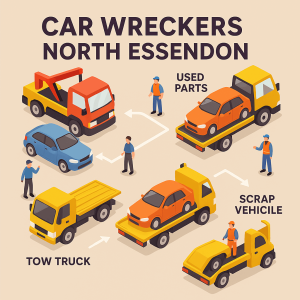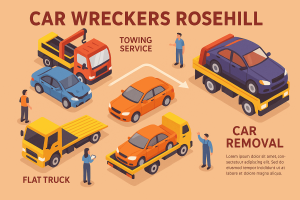Fuel system parts are crucial components in vehicles that ensure proper fuel system delivery to the engine for combustion. Understanding the various fuel system parts is essential for maintaining vehicle performance and efficiency.
What is a Fuel System?
A fuel system parts is a network of components responsible for storing, filtering, pumping, and delivering fuel to the engine. It consists of several parts working together to ensure the engine receives the right amount of fuel at the correct pressure and time.
Importance of Fuel System Parts
Every fuel component is essential to the vehicle’s overall effectiveness and performance. These fuel parts ensure smooth engine operation, from storing fuel safely to regulating flow.
Types of Fuel Systems
There are two main types of fuel systems: carbureted fuel systems and fuel injection systems.
Carbureted Fuel Systems
Carbureted fuel systems were standard in older vehicles. Before supplying the fuel to the engine, they combine it with air in the carburetor.
Fuel Injection Systems
Modern vehicles mostly use fuel injection systems that deliver fuel directly into the engine cylinders, providing more precise control over fuel delivery.
Major Fuel System Parts
Understanding the critical components of a fuel system is essential for troubleshooting and maintenance.
Fuel Tank
The fuel tank stores the fuel until the engine needs it.
Fuel Pump
The fuel pump pressurizes and pumps fuel from the tank to the engine.
Engine Fuel Pump
Fuel is sprayed into the combustion chambers of engines via fuel injectors.
gasoline-based filter
Fuel filters eliminate contaminants from the fuel before it enters the engine.
Fuel Pressure Regulator
The fuel pressure regulator maintains consistent fuel pressure for optimal engine performance.
Throttle Body
The throttle body regulates the airflow into the engine, controlling the engine’s speed and power.
Fuel Rail
The fuel rail distributes fuel to the injectors at the correct pressure.
Fuel Pressure Sensor
This sensor monitors fuel pressure in the system, sending data to the engine control unit (ECU).
Fuel Lines
Fuel lines carry fuel from the tank to the engine and back.
Common Issues
Despite their importance, fuel system parts can experience various issues over time.
Fuel System Leaks
Leaks in the fuel system can lead to fuel wastage and potential safety hazards.
Clogged Fuel Filters
Dirty fuel filters can restrict fuel flow, causing engine performance issues.
Faulty Fuel Injectors
Malfunctioning fuel injectors can result in uneven engine performance and reduced fuel efficiency.
Fuel Pump Failure
A failing fuel pump can lead to engine stalling and starting issues.
Dirty Throttle Body
A dirty throttle body can disrupt airflow and affect engine performance.
Maintenance Tips
Regular maintenance is critical to keeping the fuel system in optimal condition.
Regular Fuel System Inspections
Inspecting the fuel system regularly helps identify issues early on and prevent significant problems.
Use of Quality Fuel Additives
Using high-quality fuel additives can help clean and protect fuel system components.
Cleaning and Replacing Filters
Regularly cleaning or replacing fuel filters ensures proper fuel flow and engine performance.
(FAQs)
A failing fuel pump can cause symptoms such as engine misfires, sputtering, difficulty starting the engine, and a noticeable decrease in fuel efficiency.
How often should fuel filters be replaced?
It’s generally recommended to replace fuel filters every 20,000 to 30,000 miles or as specified by your vehicle’s manufacturer. However, if you notice any signs of a clogged filter, such as engine hesitation or reduced power, it’s advisable to replace it sooner.
Can I use aftermarket fuel additives in my vehicle?
Yes, you can use aftermarket fuel additives, but it’s essential to choose products compatible with your vehicle’s fuel system and follow the manufacturer’s recommendations. Using the wrong additives can damage fuel components.
What causes fuel system leaks, and how can they be fixed?
Damaged fuel lines, seals, or connectors can cause fuel system leaks. They can be fixed by identifying the source of the leak and replacing or repairing the affected components. It’s crucial to address leaks promptly to prevent fuel wastage and safety hazards.
How can I improve fuel efficiency in my vehicle?
To improve fuel efficiency, you can follow these tips:
Maintain proper tire pressure.
Avoid aggressive driving habits like rapid acceleration and braking.
Keep your vehicle well-maintained, including regular oil changes and tune-ups.
Conclusion
Fuel system parts are integral to vehicle performance and efficiency. Understanding these components and performing regular maintenance can prolong the lifespan of the fuel system and ensure smooth engine operation.






